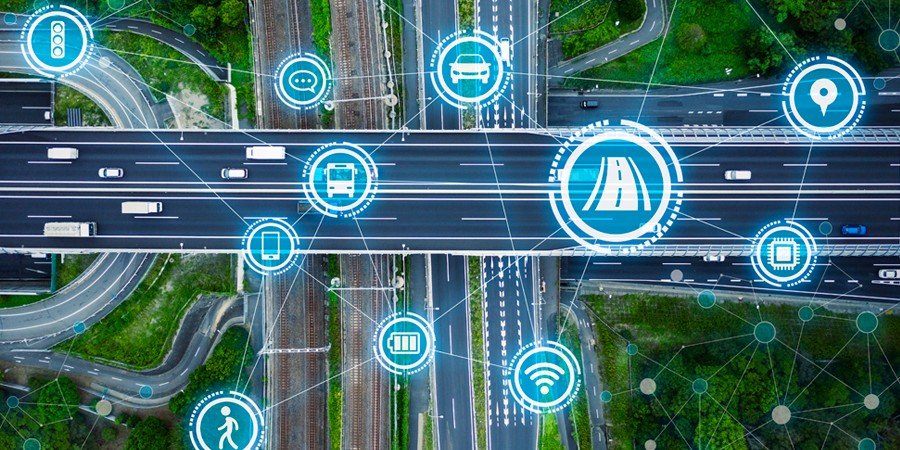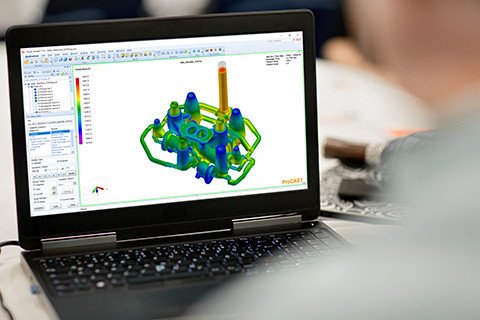Revolutionizing Transport Operations with Smart Technology

In the modern world, transportation plays a vital role in connecting people, goods, and services across the globe. As urban populations grow, the demand for efficient, sustainable, and intelligent transportation solutions has skyrocketed. This is where smart technology steps in, revolutionizing transport operations and enhancing the effectiveness of transport systems worldwide.
Smart technology in transport is not just about convenience; it’s about optimizing entire ecosystems for safety, sustainability, and cost-efficiency. The evolution of transport systems into “smart” systems is fundamentally altering how transportation networks function. This article delves into the role of smart technology in transforming transport operations, highlighting key innovations, benefits, and challenges.
What is Smart Technology in Transport Operations?
Smart technology in transport refers to the integration of advanced digital technologies—such as Artificial Intelligence (AI), the Internet of Things (IoT), machine learning, and data analytics—into transportation systems. These technologies improve the flow of goods, services, and people while simultaneously enhancing efficiency, safety, and sustainability. From connected vehicles and autonomous systems to data-driven traffic management and predictive maintenance, smart technology is revolutionizing every facet of transport operations.
The aim is to create systems that can anticipate needs, optimize processes, and provide solutions in real-time, significantly enhancing overall efficiency.
Key Innovations in Smart Transportation Technology
Several groundbreaking innovations in smart technology are redefining transport operations:
1. Autonomous Vehicles (Self-Driving Cars)
Autonomous vehicles (AVs) have been one of the most transformative innovations in smart transport technology. These vehicles rely on AI, sensors, and real-time data to navigate without human input. AVs promise to increase road safety by reducing human errors, improve traffic efficiency by reducing congestion, and offer greater mobility for people with disabilities or those unable to drive.
Leading companies such as Tesla, Waymo (a subsidiary of Alphabet Inc.), and Uber are at the forefront of developing autonomous vehicle technology. In some cities, these vehicles are already being tested and, in some cases, used for public transport services.
2. Connected Vehicle Technology
Connected vehicles, often referred to as “smart cars,” use the Internet of Things (IoT) to communicate with each other and with infrastructure (like traffic signals, toll booths, and parking lots). This connectivity allows for real-time traffic data sharing, enabling vehicles to adjust their routes based on traffic conditions, weather, and road incidents.
Connected vehicles can also communicate with other vehicles to prevent accidents by warning drivers of potential collisions or hazards. For example, systems like V2V (Vehicle-to-Vehicle) and V2X (Vehicle-to-Everything) are designed to enhance safety and optimize traffic flow.
3. Intelligent Traffic Management Systems (ITMS)
One of the main goals of smart transportation is to reduce congestion, minimize delays, and improve traffic flow. Intelligent traffic management systems leverage AI, big data, and real-time monitoring to dynamically adjust traffic signals, control congestion, and provide drivers with optimal route guidance.
By analyzing traffic patterns, weather data, and incidents, these systems can predict congestion and redirect vehicles accordingly. Cities like Singapore and Barcelona have integrated these systems to manage urban traffic more efficiently, reducing waiting times and improving overall traffic flow.
4. Smart Parking Solutions
Finding parking in urban areas has always been a significant challenge, contributing to congestion and wasted time. Smart parking systems use sensors, mobile apps, and AI to guide drivers to available parking spaces in real time. These solutions allow for more efficient use of available parking and reduce the environmental impact of cruising for spaces.
Cities like San Francisco and London are implementing these smart parking solutions, allowing users to pay for parking via mobile apps and even reserve spaces in advance.
5. Electric Vehicles (EVs) and Charging Infrastructure
Electric vehicles are increasingly becoming a cornerstone of smart transport, contributing to reduced emissions and lower environmental impacts. As EV adoption rises, so does the need for an extensive charging infrastructure. Smart charging solutions enable users to locate available charging stations and optimize charging based on grid demand, ensuring an efficient and sustainable energy use system.
In addition, advancements like wireless charging for EVs are being tested to reduce the need for physical charging stations, which could further revolutionize urban mobility.
6. Drone Delivery Systems
While still in its experimental stages, drone technology promises to change how goods are transported, especially in last-mile delivery services. Companies like Amazon and Google are already exploring drone-based delivery solutions for small packages, aiming to reduce delivery times and improve logistical efficiency.
Drone technology also has the potential to support emergency services by delivering supplies to remote or difficult-to-reach locations, providing critical aid during natural disasters or medical emergencies.
Benefits of Smart Technology in Transport Operations
The integration of smart technologies into transport systems offers numerous benefits that improve the efficiency, sustainability, and safety of transport operations.
1. Improved Efficiency and Reduced Congestion
By leveraging real-time data, intelligent transport systems can optimize traffic flow, reducing congestion and delays. Additionally, the use of autonomous vehicles and connected vehicle networks can improve traffic management by ensuring smoother vehicle movement, leading to fewer bottlenecks.
For example, predictive traffic analytics can alert drivers about potential congestion points, road closures, or accidents, allowing them to choose alternative routes and avoid delays. Smart systems can even coordinate traffic lights based on real-time traffic data to optimize the flow of traffic.
2. Enhanced Safety
Smart transportation systems enhance road safety by reducing human errors, which are responsible for the majority of traffic accidents. Autonomous vehicles equipped with sensors and AI can detect obstacles and react faster than humans, preventing accidents before they occur. Moreover, connected vehicles can communicate with each other and with infrastructure to warn drivers of potential hazards, such as an approaching emergency vehicle or a pedestrian crossing the road.
3. Environmental Sustainability
One of the most significant advantages of smart technology in transport is its ability to contribute to environmental sustainability. Autonomous electric vehicles (EVs) reduce carbon emissions and noise pollution compared to traditional vehicles. Additionally, smart systems can optimize routes, leading to fuel savings and reducing the overall carbon footprint.
Smart charging infrastructure for electric vehicles also helps manage energy usage, ensuring that charging times are scheduled during off-peak hours to reduce strain on the electrical grid.
4. Cost Reduction
By automating several aspects of transportation, including vehicle maintenance, route planning, and traffic management, smart technology helps reduce operational costs. Predictive maintenance systems, for instance, use data from sensors to anticipate when a vehicle might need maintenance, preventing costly repairs and downtime. Moreover, the automation of various tasks helps organizations cut labor costs, leading to more affordable services.
5. Better User Experience
The convenience that smart technology provides to users is one of its biggest selling points. From seamless access to ride-sharing services to real-time traffic updates, smart technology makes transportation more accessible and user-friendly. Travelers can receive timely information about their journeys, book rides or parking spots in advance, and avoid unnecessary delays.
Challenges and Considerations
While the benefits of smart technology in transport operations are significant, there are also challenges to overcome:
1. Privacy and Security Concerns
The widespread use of connected vehicles and smart systems generates large volumes of data. Ensuring that this data is kept secure from cyber-attacks and is used responsibly is crucial. Privacy concerns, such as the tracking of individuals’ movements, must be addressed through strong data protection regulations and secure systems.
2. High Initial Costs
The adoption of smart transportation systems requires significant upfront investment, particularly in infrastructure and technology. For many municipalities and organizations, this initial cost may be a barrier, though the long-term savings and benefits often outweigh the initial outlay.
3. Technological Integration
The successful deployment of smart technology requires integrating new systems with legacy transport infrastructures. This process can be complex and time-consuming, requiring careful planning and execution.
The Future of Smart Transportation
The future of smart transportation holds tremendous potential. As technology continues to evolve, we can expect to see even more interconnected and autonomous transport systems. The integration of AI, IoT, and big data will enable transport networks to become more adaptive, responsive, and efficient, transforming urban landscapes into smart cities.
From autonomous buses and taxis to hyper-efficient logistics networks powered by drones, smart technology is poised to reshape transport operations on a global scale.
Conclusion
Smart technology is undeniably revolutionizing transport operations, offering numerous benefits ranging from increased efficiency to enhanced safety and sustainability. While challenges remain in terms of privacy, integration, and cost, the continued advancement of smart systems promises to transform how we move people and goods.
As smart transportation systems evolve and become more widespread, they will not only improve the way we navigate our cities but also create a more sustainable and interconnected world for future genertions.





